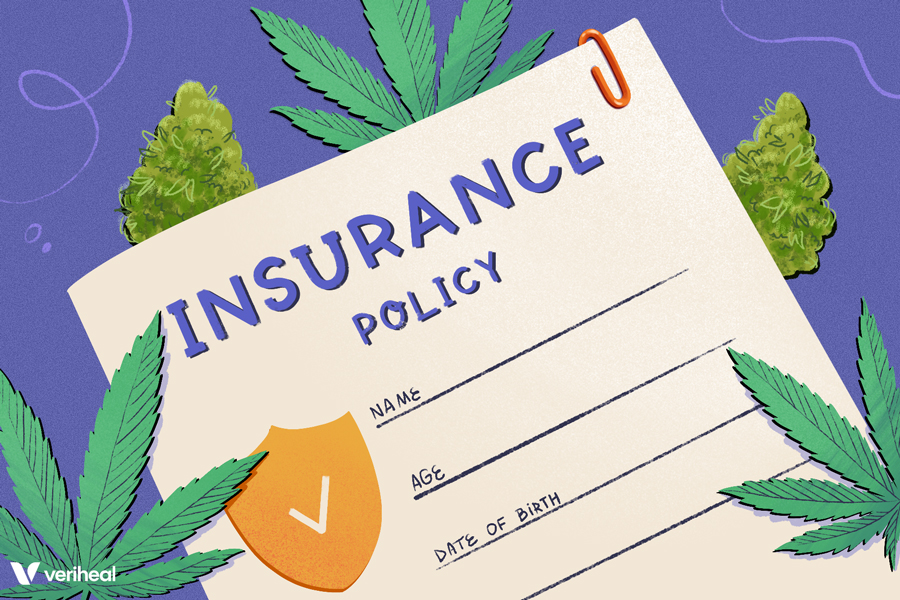Due to cannabis’ federal Schedule I status, there are several limitations to who can provide cannabis and if insurance is able to step in and assist with the cost of seeing a provider and covering the cost of the cannabis. In states that allow medical marijuana programs, healthcare providers can’t prescribe medical marijuana, but healthcare providers can recommend it or make a referral to a state dispensary, or in some states, they are called pharmacies. A dispensary or pharmacy is a designated store where marijuana is sold outside the realm of traditional pharmaceuticals.
Even though cannabis is legal in 75% of the United States, most private and public insurance companies will not pay for medical marijuana recommendation use or marijuana products. Again, this all comes back to the fact that cannabis is federally illegal. Private insurance companies that operate on a national level must comply with federally-mandated coverage requirements. This means that most don’t want to risk entering the illegal muddy waters of medical cannabis, even if cannabis is legal in the state.
Medicaid, the federally operated health insurance organization, focuses on helping low-income individuals access affordable medication and healthcare but cannot assist patients in gaining access to medical cannabis because it is federally funded. A recent survey by MedicarePlans.com found that 2 in 3 Medicare beneficiaries said that Medicare should cover medical marijuana. This survey also found that 6 in 10 of those who support coverage said the reason is they believe cannabis can be effective when other treatments fall short.
Cannabis Covered by Insurance
There is one loophole to insurance covering the cost of medical marijuana. There are three FDA-approved prescription medications that contain cannabinoids. Healthcare providers can prescribe them, and Medicare may cover the cost. The FDA-approved cannabinoid-based medications are:
- Epidiolex: This medication is approved to treat rare forms of epilepsy known as Lennox-Gastaut or Dravet syndromes.
- Marinol and Syndros: These are brand names for dronabinol. They treat nausea and vomiting in people receiving chemotherapy for cancer. They’re also used to treat people with HIV/AIDS who have anorexia or significant weight loss.
- Cesamet (Nabilone): This medication is also FDA-approved to treat nausea and vomiting in people receiving chemotherapy for cancer.
Changes are Coming
There is hope on the horizon. Medicaid is a joint federal and state program that gives health coverage to some people with limited income and resources. Because Maedicaid has state involvement, there is some wiggle room on medical cannabis. The state of New York offers Medicaid services reimbursement through Medicaid for patient evaluation and certification, though not for products.
Why You Should Get Your Medical Marijuana Card
Veriheal has satisfied millions of patients nationwide by giving them access to these benefits
- Larger purchase limits
- Peace of mind
- Enhanced legal protection
- Access to higher potency strains
- Save up to 25% on cannabis purchases
- Skip the line at the dispensary
On the flip side, New Hampshire and New Mexico allow for the reimbursement of medical marijuana purchases on a state level. More recently, court cases in Pennsylvania and New Jersey have successfully argued for medical marijuana reimbursement in the case of workers’ compensation. Overall, on a national level, Medicaid is in the same boat as Medicare and will likely not assist with medical marijuana for several years or until the laws and regulations change.
Victory in Pennsylvania
Recently, a Pennsylvania appeals court ruled that the state’s medical marijuana law does not prohibit insurers from reimbursing injured workers for medical marijuana in cases where the drug is used to treat accepted work injuries.
In a worker’s compensation case filed by Paul Sheetz while working for Firestone Tire and Rubber, the Pennsylvania Commonwealth Court ruled that the state’s Workers’ Compensation Appeal Board made an error when it upheld a decision by Firestone Tire & Rubber to deny reimbursement for the cost of Paul Sheetz’s medical marijuana. Sheetz, who is now deceased, had been using medical marijuana to treat chronic pain from a 1977 work injury. He had used medical marijuana to taper off the decades of prescribed opioid use.
Ms. Kaufman, a Pennsylvania-based attorney who represented Sheetz, said the case means insurers must reimburse marijuana costs in cases where the treatment is deemed “reasonable and necessary” and that reimbursement would likely only come in serious or old injury cases where medical marijuana is the “primary treatment modality.” Firestone’s stance was that providing medical marijuana would violate federal law if forced to reimburse for medical marijuana. The court ruled reimbursement is not a federal crime because insurers are not prescribing the drug themselves.
Resources Other Than Insurance
To help offset the cost that insurance will not cover, several states and cities have programs that offer assistance with free or discounted medical marijuana patient ID cards, registration, and the cost of products. Until insurance companies are able to assist patients with costs, unfortunately, many will turn to opioids and benzodiazepines to treat pain and other issues. Insurance covering the cost of medical cannabis would be a step in the right direction of harm reduction against addictive pharmaceuticals covered by insurance.
Author, Share & Comments








